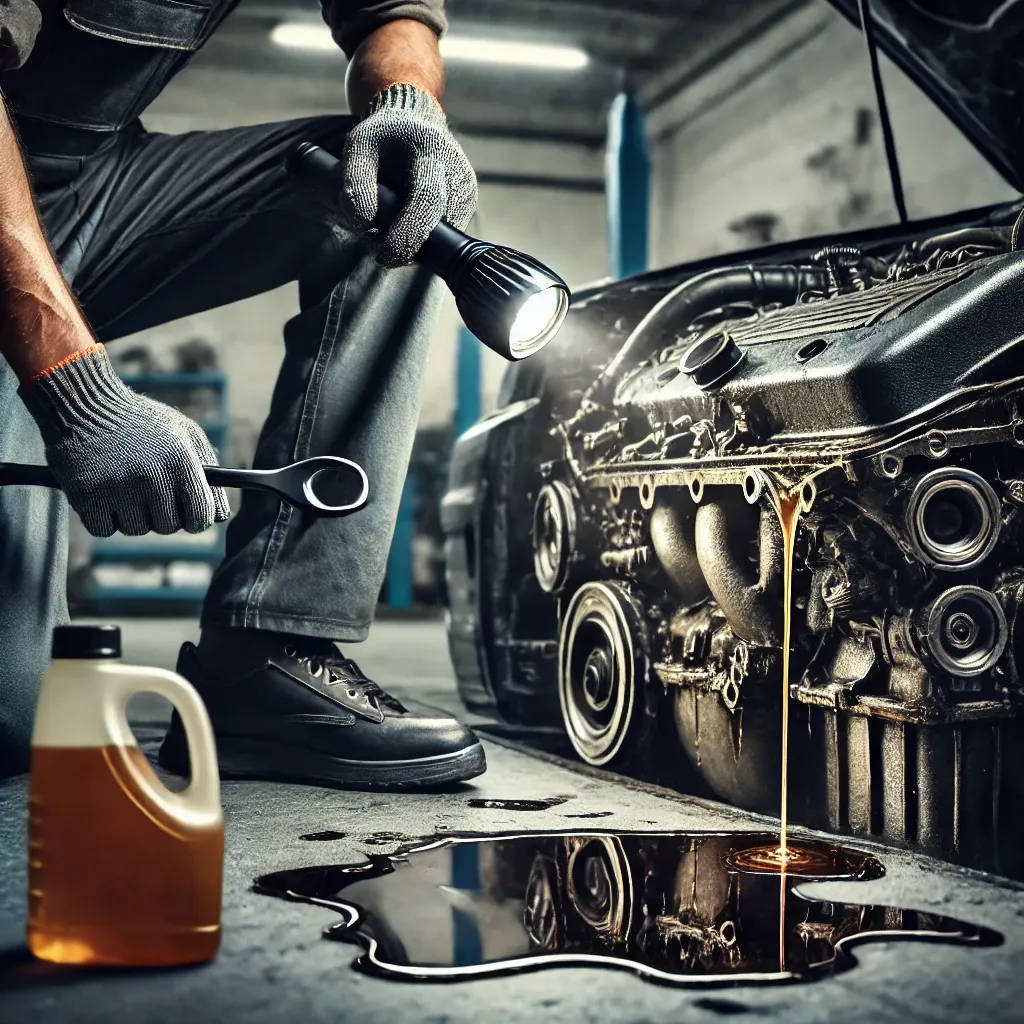Is your car leaking engine oil? Discover how engine oil leak replacement works, the common causes of engine oil leaks, and the steps for effective repair. Learn how to solve the problem and prevent further damage.
Engine Oil Leak Replacement
When an engine begins leaking oil, it can lead to major issues if not addressed promptly. A leaking engine oil system can cause engine damage, reduced performance, and costly repairs if left untreated. Replacing the leaking oil components is essential in preventing these problems.
Common Sources of Engine Oil Leaks
Engine oil leaks can occur in various places throughout the engine. Here are a few common sources:
-
Gaskets and seals Gaskets around the oil pan, valve cover, or timing chain can wear out, causing oil to seep out.
-
Oil filter A loose or improperly fitted oil filter can allow oil to leak.
-
Oil pan The oil pan may develop cracks or the gasket may fail, leading to leaks.
-
Front and rear crankshaft seals These seals can wear down over time and leak oil.
-
Cylinder head gasket If the gasket fails, oil can leak from the cylinder head area.
Steps for Engine Oil Leak Replacement
-
Identify the leak The first step is to find the source of the leak. A mechanic may need to clean the engine to observe where the oil is coming from.
-
Drain the engine oil Before any repair can be done, the old oil should be drained to prevent contamination and avoid further damage.
-
Replace the damaged parts This could include gaskets, seals, or even the oil pan, depending on the source of the leak.
-
Reassemble and test Once the parts are replaced, the engine is reassembled, and a test run is done to ensure the leak is fixed.
Have you noticed any oil stains under your car? Addressing an engine oil leak quickly can save you from bigger, more expensive issues down the road.
Learn more about oil leak repairs
Causes of Engine Oil Leakage
Understanding the causes of engine oil leakage is critical for taking preventive action. The reasons behind oil leaks vary but often stem from normal wear and tear, as well as poor maintenance. Let’s break down some of the most common causes.
1. Worn Gaskets and Seals
Gaskets and seals can deteriorate over time due to engine heat and pressure. When these components break down, oil may begin to leak. This is a common cause of oil leaks in older vehicles.
2. Improper Installation
Incorrectly installed or damaged parts, such as oil filters or gaskets, can cause oil to leak. If a mechanic doesn’t install these parts properly, it can lead to significant oil loss.
3. Cracked Engine Block
Though less common, cracks in the engine block or cylinder head can lead to oil leakage. If you notice smoke coming from your engine, this could indicate a serious issue, such as a cracked block.
4. Overfilled Oil
When the oil level in your engine is too high, it can lead to excessive pressure and cause oil to leak from various points. This is why it’s crucial to maintain the correct oil level.
5. Age and Wear
As your vehicle ages, parts like the oil pan, seals, and hoses can degrade, leading to leaks. Regular maintenance and inspections can help identify these issues before they become major problems.
6. High Engine Pressure
An engine under heavy load or strain may experience high internal pressure, leading to oil leaks. This is common in performance vehicles or those that are often driven hard.
Understanding these causes is crucial in preventing leaks. Routine maintenance, like replacing gaskets or seals, can save you money in the long run.
Learn more about the causes of engine oil leaks
Engine Oil Leakage Gasket
Gaskets play an essential role in sealing various engine parts, including the oil pan, valve cover, and cylinder head. Over time, these gaskets can become worn or damaged, resulting in oil leaks.
The Role of Engine Oil Leakage Gaskets
Gaskets act as seals that prevent oil from escaping the engine. When they become damaged, oil can seep out, leading to leaks. Here’s why gaskets are so crucial:
-
Oil Pan Gasket The oil pan gasket seals the oil pan to the bottom of the engine block. If this gasket fails, it can cause oil to leak onto the ground.
-
Valve Cover Gasket The valve cover gasket keeps oil from leaking out of the valve covers, which are located on top of the engine. A worn valve cover gasket can lead to oil dripping onto the engine.
-
Timing Chain Cover Gasket This gasket prevents oil from leaking from the timing chain area. A damaged gasket here can cause oil to drip down the front of the engine.
-
Cylinder Head Gasket A blown cylinder head gasket can lead to both oil and coolant leaks, causing severe engine damage if not repaired immediately.
Replacing gaskets promptly is key to preventing further damage. A qualified mechanic will know how to replace the faulty gasket and restore the engine’s integrity.
Learn about gasket replacement for oil leaks
Conclusion
Engine oil leaks are a common issue that every car owner will likely face at some point. From replacing gaskets to understanding the causes of leaks, staying proactive with maintenance is key to preventing engine damage. Whether you’re dealing with a worn gasket, a cracked engine part, or simply poor maintenance, timely repairs will save you from costly consequences.
By replacing the affected parts and taking preventive measures, you can ensure your vehicle runs smoothly and avoid major repairs in the future. Don’t ignore a leaking engine – address the issue as soon as you spot it to protect the longevity of your car.






